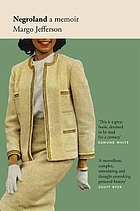An idea which struck me was her insistence that contemplation of suicide is a civil right or privilege which blacks in America should seek to earn:
But one white female privilege had always been withheld from the girls of Negroland. Aside from the privilege of actually being white, they had been denied the privilege of freely yielding to depression, of flaunting neurosis as a mark of social and psychic complexity. A privilege that was glorified in the literature of white female suffering and resistance. A privilege Good Negro Girls had been denied by our history of duty, obligation, and discipline. Because our people had endured horrors and prevailed, even triumphed, their descendants should be too strong and too proud for such behavior. We were to be ladies, responsible Negro women, and indomitable Black Women. We were not to be depressed or unduly high-strung; we were not to have nervous collapses. We had a legacy. We were too strong for that. I craved the right to turn my face to the wall, to create a death commensurate with bourgeois achievement, political awareness, and aesthetically compelling feminine despair. (pp. 171-2)I've never been very good dealing with people with depression, and I criticized Jay Asher's Th1rteen R3asons Why.
Here's a passage on housing segregation in Hyde Park, the home of University of Chicago, in the 1960s (p. 147):
Here's a passage about the mental price Margo Jefferson paid as a child trying to navigate the rules of race, gender and class which had been imposed on her and how her adult life has been an attempt to become "a person of inner consequence." (p. 156)



